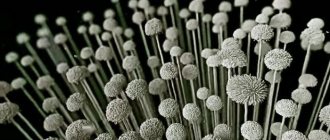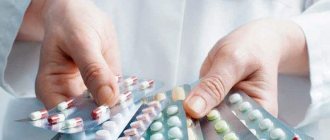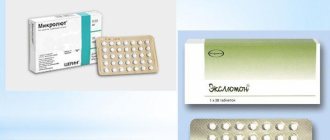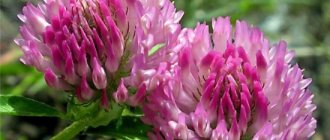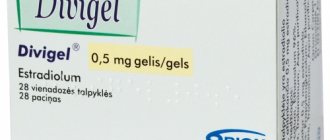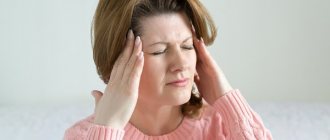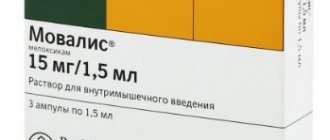*This material is subjective in nature and is not an advertisement and does not serve as a purchase guide. Before purchasing, consultation with a specialist is required. About the selection criteria.
Sooner or later, every representative of the fair sex has to become familiar with menopause. To say that such a condition has an unpleasant effect on a woman’s life, causes discomfort, reduces self-esteem, and worsens the quality of life is an understatement. You don’t need to endure unpleasant symptoms; you can do everything to live to the fullest during menopause and not feel the hormonal changes in your body as much as possible. It is not surprising that before, women used to hide their poor health in every possible way and were embarrassed by their condition, but in the modern world, you can and should fight for your health and beauty. Now there are a lot of non-hormonal drugs and vitamin complexes available that can significantly improve well-being during menopause. These tools work in different ways. When the question arises about choosing the right drug, difficulties may arise. The rating of non-hormonal drugs for menopause was compiled taking into account expert opinion and customer reviews, is for informational purposes only and is not a call for purchase.
What is menopause?
Menopause is an inevitable stage in the life of every woman. When menopause occurs, a woman loses her reproductive function.
The causes of menopause are directly related to the menstrual cycle. Every month, during menstruation, along with spotting, a woman loses a certain number of eggs from the ovaries.
From birth, a woman’s body contains a certain number of eggs, which are not replenished throughout life, so when the last cell leaves the body, menopause occurs.
Symptoms of menopause
When menopause occurs, the amount of sex hormones in a woman’s body sharply decreases. One of the first signs of menopause is the cessation of menstruation.
However, these are not the only changes that accompany menopause.
Disorders of the vegetative-vascular and endocrine systems are observed. Psychological stability is impaired. “Climacteric syndrome” is accompanied by characteristic symptoms:
- dizziness, fatigue;
- frequent pressure surges;
- cardiopalmus;
- sweating;
- increased nervousness or insomnia;
- hot flashes, which are accompanied either by an unbearable feeling of heat, or by a piercing chill.
The most common external manifestation of menopause is weight gain.
Due to hormonal changes, the risk of various gynecological diseases, including oncology, increases. That is why regular visits to the doctor are so important during this period.
Briefly about general concepts
Many women confuse the concepts of “menopause” and “menopause”. They alternate, but still they are different states.
Menopause is the cessation of menstruation and its absence for a year. It is part of a general concept.
Menopause is the end of the ovaries' ability to produce eggs. Consists of periods:
- premenopause;
- menopause;
- postmenopause.
All women note that before the last menstrual cycle the nature of the discharge changed. Symptoms of premenopause:
- copious discharge;
- delays;
- prolonged menstruation;
- increase.
At the first such symptoms in a woman 40 years or older, she should contact a gynecologist and undergo an examination.
If the diagnosis is confirmed, the doctor will prescribe medication. Most often they are hormonal and contain estrogen. Medicines are effective, but have many contraindications. For this reason, many do not want to resort to them.
If the condition is not critical and the girl can lead a normal life, non-hormonal substances should be used as an analogue of estrogen.
Hormonal drugs for menopause
The symptoms of menopause are primarily associated with changes in hormone levels. As a result, the main treatment is aimed at replenishing hormones, the so-called hormone replacement therapy (HRT).
HRT drugs are divided into two groups:
- Containing estrogens (mainly prescribed after surgical removal of the uterus);
- Containing estrogen and progesterone (prescribed to protect the endometrium).
Successful hormonal treatment is possible with regular visits to the doctor and systematic examination. The doctor must be sure that the body tolerates the therapy well.
Contraindications for HRT are:
- breast cancer, melanoma;
- thrombophilia (hereditary or acquired);
- autoimmune diseases;
- diseases of the liver and biliary tract;
- bleeding, the origin of which is unknown.
Hormonal therapy is also not recommended for endometriosis, uterine fibroids and problems with the cardiovascular system.
Selective modulators
This group of products also does not contain hormones and is indicated for women over 45 years of age not only to relieve menopausal symptoms, but also to prevent tumors and prevent osteoporosis.
List of drugs:
- Tamoxifen (tablets). , Finland.
- Raloxifene (tablets). , Germany.
- Ovariamine (tablets). , Russia.
Photos of drugs:
Tamoxifene Raloxifene
Ovariamine
Non-hormonal drugs for menopause
In case of contraindications for hormonal therapy, non-hormonal therapy has proven itself well. Non-hormonal preparations include plant substances that are natural analogues of the hormone estrogen.
Phytoestrogens perform the function of replacing hormones that are synthesized by the ovaries. Non-hormonal therapy is designed to reduce the symptoms of menopause.
In nature, phytoestrogens help plants protect themselves from the negative effects of sunlight and also slow down the aging process. Therefore, taking medications with these substances allows you to delay aging and protect the body from the harmful effects of the sun.
Compensating for the lack of hormones has a beneficial effect on the body, providing a general strengthening effect, fights age-related changes and normalizes the quality of life.
Preference is given to non-hormonal drugs, including because they have a number of advantages over hormonal treatment, namely:
- It has virtually no contraindications. Since non-hormonal drugs contain natural herbal ingredients, there is a risk of an individual allergic reaction to the components of the drug. Diseases of the gastrointestinal tract are also a contraindication for non-hormonal therapy. Each drug contains its own comprehensive list of restrictions, which vary from drug to drug;
- Medicines containing phytoestrogens, unlike hormonal drugs, can be used for quite a long time. Such drugs have a very mild effect and do not cause side effects that are characteristic of hormonal therapy, such as weight gain, blood clots and the development of tumor formations;
- The risks associated with overdose are minimal . Since such drugs are plant-based, there is a risk of a more severe allergic reaction if the dosage of the drug is exceeded.
Indications for the use of non-hormonal drugs
Non-hormonal medications for menopause are effective and reliable helpers that make this period more comfortable.
Indications for prescribing non-hormonal drugs are:
- Early menopause. In case of early menopause (up to 40 years), stimulation of existing sex hormones with the help of non-hormonal drugs is practiced;
- Diabetes. This disease is accompanied by a violation of the body's metabolic functions, which can be “corrected” thanks to the natural components of non-hormonal drugs;
- Prolonged amenorrhea;
- Hypertension. Hormonal drugs can cause pressure surges;
- Late menstruation (after 16 years). This symptom indicates an initial hormonal imbalance;
- Diseases of the genitourinary system , especially in chronic forms;
- Cardiovascular diseases;
- Osteoporosis.
Juice therapy is a great choice
Fresh vegetable juices contain vitamins and antioxidants, restore the balance of minerals in the body, and the phytoestrogens in their composition help the female body mitigate the symptoms of menopause. Organic acids, which beet, carrot and cucumber juices are rich in, thin the blood and strengthen the cardiovascular system. Beets are rich in iron, necessary for the synthesis of erythrocytes - red blood cells.
Cucumber juice has a mild diuretic effect and restores the acid-base balance of the body. The bones of women during menopause are especially vulnerable due to impaired calcium metabolism. Celery contains an optimal ratio of calcium to sodium, making it absorbable by the body. Thus, calcium salts do not settle on the walls of blood vessels, but restore the strength of the musculoskeletal system.
Why juice and not fresh vegetables?
Fresh vegetables contain fiber and pectin, which stimulate the digestive system and cleanse the intestines, removing toxins from it. But in order for fresh vegetables in large quantities to be safe for the body, it is necessary that they be natural and do not contain nitrates and herbicides.
Vegetables grown in your own garden can be safely eaten, since you can be sure of their quality. It is useful to chew fresh carrots - it helps to mechanically clean the teeth and stimulates blood circulation in the gums, and constantly prepare salads from fresh cucumbers, celery, and parsley. However, the vegetables you buy at the market accumulate nitrates, herbicides and other substances that stimulate their growth and kill pests. Many of these substances are toxic to the body and are carcinogenic, so they can be harmful to health.
If you use only the juice of fresh vegetables, all toxic substances remain in the cake, and vitamins, minerals, phytoncides and phytoestrogens are preserved. In addition, you can drink much more juice, receiving beneficial substances in increased concentration. Juice contains biologically beneficial components that are more easily absorbed by the digestive system, so vegetable juices can be consumed even by people weakened by illness.
What about fruits?
Fruits, like vegetables, are rich in vitamins, antioxidants, micro- and macroelements, and other biologically active substances necessary for biochemical processes in the body. Daily consumption of fresh fruit helps cleanse blood vessels, normalize blood pressure, remove hot flashes and normalize sleep patterns during menopause.
However, the use of fruits in juice therapy during menopause is undesirable due to the high content of fructose and glucose sugars. Exceeding the daily sugar intake threatens to disrupt the function of the pancreas and can provoke diabetes and obesity. In addition, sweet juice damages enamel and makes teeth vulnerable to tooth decay. Eating fresh fruits is not so dangerous because it is impossible to eat so much of them at one time. But you can drink an unlimited amount of fruit juice, which can cause indigestion, fermentation processes in the intestines and allergies.
Juice recipes for menopause
- Recipe 1.
Take 7 parts carrots, 4 parts celery, 3 parts spinach and 2 parts parsley, rinse well and place in a juicer. Distribute the resulting mixture throughout the day: drink half a glass of juice twenty minutes before meals. You need to get used to this juice gradually - you can drink up to a liter a day without any health concerns, but only if during the first dose you did not feel any discomfort in the stomach or a deterioration in your health. The dose of a single dose should be increased to one glass no less than after a week. The duration of the course is a month, after which you need to take a two-week break and, if necessary, continue treatment.
- Recipe 2.
Mix freshly squeezed juices of kiwi, cucumber, carrots and beets in a ratio of 1:3:10:3, respectively. You need to take three tablespoons twenty minutes before meals, gradually increasing the dose of a single dose to half a glass three times a day. If you feel discomfort, nausea or dizziness after even a small amount of the mixture, start with 1 tablespoon at a time. You can also reduce the amount of beet juice in proportion to one part.
Antidepressants
As already emphasized earlier, menopause is accompanied by a disturbance in the psycho-emotional state of a woman. There are frequent mood swings.
In some cases, depression may develop. These problems are solved using various methods, including regime correction. But in especially advanced cases it is necessary to resort to the help of antidepressants.
Why do you need to take antidepressants?
Antidepressants bring a woman’s nervous system into a normal state, which allows her to continue to lead a quality, measured life. As the name suggests, antidepressants are used for depression.
They eliminate unpleasant symptoms caused by the disease, such as apathy, decreased performance, dissatisfaction with life, anxiety, increased restlessness, panic conditions, decreased appetite and others.
When taking antidepressants, you must adhere to certain rules:
- Antidepressants can only be prescribed by a doctor;
- You shouldn't hope for an instant effect. These drugs have a cumulative effect, so a fairly long period of use is required to obtain the first results;
- Do not despair if there is no effect. In this case, you need to consult a doctor to adjust the treatment. This may involve establishing a different dosage or prescribing a different drug.
Treatment for depression takes a long time. Therefore, it is very important to choose the right drug, eliminating side effects.
Contraindications
Contraindications to the use of most sedatives are kept to a minimum. Basically, this is an individual intolerance to components (especially important for herbal medicines). Only a competent specialist can choose the right drug.
Side effects of antidepressants
Despite the development of pharmacology, antidepressants cannot be classified as safe drugs.
Antidepressants have an impressive list of side effects. But unfortunately, treating depression is impossible without these drugs.
Each antidepressant has its own side effects:
- Nausea,
- Decreased appetite
- Dry mouth
- Constipation,
- Diarrhea,
- Decreased libido
- Frequent headaches
- Irritability,
- Bad dream.
Most side effects are temporary and disappear on their own. It is quite possible to learn to cope with some of these conditions.
Types of antidepressants
When treating depression, doctors use natural antidepressants and sedatives.
Natural antidepressants are well known to everyone, these are:
- Valerian. Valerian extract is widely used in the early stages of menopause. Valerian is often one of the components of herbs, homeopathic medicines, and dietary supplements. Helps overcome insomnia, reduce anxiety, and normalizes blood pressure. An overdose leads to drowsiness, weakness, and loss of performance.
- Motherwort. Has a calming effect. Normalizes sleep, eliminates cramps, irritability and nervous tension.
- Oregano. It has a pleasant taste and smell. Included in fees and teas. Helps eliminate hot flashes.
- Sage. Used in aromatherapy.
Sedative medications used to treat depression include:
- Grandaxin. The main active ingredient of this drug is tofisopam. This substance has a vegetative-regulating and sedative effect. Not addictive.
- Novo-Passit. It is a medicinal tranquilizer. Available in the form of syrup and tablets. Allows you to stabilize your psycho-emotional state and has a positive effect on hormonal levels. Improves sleep quality, fights hypertension, stabilizes sweating, suppresses anxiety and irritability.
- Persen. This antidepressant contains valerian extract, mint and motherwort. Normalizes sleep, reduces irritability, copes with hot flashes.
- Lerivon. Helps increase concentration and performance, eliminates depression.
- Coaxil. Helps in the absorption of serotonin and relieves pain. Stabilizes the nervous and autonomic systems of the body.
- Klimaktoplan. Fights all manifestations of psycho-emotional disorders. Use from the first symptoms of menopause allows you to avoid the development of more serious neurological diseases in the future.
Grandaxin Klimaktoplan Lerivon Persen
Coaxil
Novo-Passit
Prices
Prices for natural medicinal antidepressants are not high and range from 30-150 rubles and are always available at any nearby pharmacy.
Sedative medications, due to their rather complex composition, are more expensive than natural antidepressants.
But among them you can find a drug that you can afford:
- So Grandaxin can be purchased from 300 rubles. ,
- Novo-Passit is quite inexpensive and, depending on the shape and volume, can be purchased from 150 rubles. ,
- Persen from 180 rub. ,
- Lerivon from 950 rub. ,
- Coaxil from 750 rub .,
- Klimaktoplan from 600 rub.
Vaginal suppositories
Non-hormonal drugs for menopausal disorders are represented not only by dosage forms for oral administration.
For certain symptoms, it is beneficial to use suppositories.
Advantages of this dosage form:
- Does not affect the gastric mucosa and liver.
- Quickly absorbed, it acts directly on the reproductive system.
- It has a local healing effect and relieves dryness and inflammation of the mucous membrane.
- Increases local immunity.
The list of new and most effective vaginal suppositories of plant origin includes Climaktol - Antikan and Cicatridina.
It is important to know!
Effective ways to treat menopause exist! The story of one of our readers...
Read more >>>
Klimaktol – Antikan
, Russia.
The candles contain oils of lemon balm, hops, sea buckthorn and valerian root.
Vaginal suppositories Klimaktol increase local immunity and restore the natural vaginal microflora
Suppositories relieve inflammation, eliminate vaginal dryness, and reduce discomfort and burning.
The use of the drug is also recommended for women after surgical interventions on the reproductive organs and during the recovery period after suffering from inflammatory diseases.
Directions for use : one suppository per night for a course of treatment of one to three weeks.
Cicatridine
, Italy.
Suppositories improve the process of epithelization and restore the mucosa during menopause with estrogen deficiency
Vaginal suppositories include:
- Hyaluronic acid;
- Centella oil;
- Calendula extract;
- Aloe extract;
- Tea tree oil.
Due to the hyaluronic acid in the composition, the drug acts as a structural support: it tones, nourishes, and gives elasticity to the mucous membrane.
Indications:
- Atrophic, dystrophic processes in the vaginal mucosa;
- Postpartum, postoperative period;
- Recovery after chemotherapy.
Directions for use : one suppository at night. The duration of the course of treatment with the drug is determined by the doctor individually.
Video on the topic:
Antiepileptic drugs
To reduce the number of hot flashes during menopause, the doctor prescribes antiepileptic drugs to the woman.
The main active substance of such drugs is Gabapentin.
An additional bonus when taking antiepileptic drugs is increased resistance to stress.
Why do you need to take antiepileptic drugs?
The main task of antiepileptic drugs is to control hot flashes. Such drugs normalize the body's cooling function. Can only be prescribed by a doctor; arbitrary use is not allowed.
Contraindications
The main contraindications for taking antiepileptic drugs are individual intolerance to the components, lactase deficiency, acute pancreatitis. Relative contraindications are renal failure and psychotic illnesses.
Side effects
Antiepileptic drugs have a number of side effects, namely:
- development of viral diseases;
- pneumonia;
- urinary tract infections;
- increased appetite;
- drowsiness;
- amnesia;
- bronchitis and others.
Drugs
Mostly doctors prescribe the following antiepileptic drugs:
- Gabagamma;
- Catena;
- Tebantin.
Catena Gabagamma Tebantin
Doctors have other equally effective drugs in their arsenal.
Prices
Antiepileptic drugs do not belong to the category of cheap drugs.
Average price of drugs:
- Gabagamma is 500 rubles. ,
- Catena 400 rub. ,
- Tebantin 800 rub.
How can you help yourself further?
Of course, a woman will not feel a significant improvement in her condition from taking one pill. It is necessary to be patient in order to take the non-hormonal remedy for menopause prescribed by the gynecologist without skipping, and also at the same time.
In order to improve her condition, a lady should approach this issue comprehensively:
- adhere to a low-calorie balanced diet;
- walk more in the fresh air;
- engage in sports and feasible physical activity;
- To normalize your psychological state, do yoga or auto-training.
It should be remembered that the most important rule of effective treatment is that medications for menopause in women are prescribed only by the attending physician.
Expert opinion
Alexandra Yurievna
General practitioner, associate professor, teacher of obstetrics, work experience 11 years.
You cannot self-medicate or take the same thing as your neighbor or friend. Even a complex of vitamins should be selected by a doctor, taking into account the state of the woman’s physical and psychological health.
Phytoestrogens
Non-hormonal drugs that contain phytoestrogens can reduce the severity of menopausal pathologies. Of course, with the help of such means it is impossible to completely eliminate all the symptoms of menopause, but you can significantly smooth out the process.
Popular drugs
The variety of products with phytoestrogens is amazing, but there are a number of products that have already proven themselves to be the most effective, such as:
- Estrovel. The drug contains a large amount of natural estrogens, namely cohosh extract, nettle, yam root, and soy isoflavones. Estrovel actively fights hormonal imbalance and has a beneficial effect on the general condition of the body.
- Feminal. The active substance of this drug is red clover isoflavones. The use of the drug helps support heart function, reduces the frequency of hot flashes, and eliminates insomnia.
- Femiwell. The product contains soybeans and red clover. The combination of these components helps fight headaches and normalize blood pressure.
Estrovel Feminal Femiwell
Contraindications
Contraindications to the use of phytoestrogens are:
- oncological diseases;
- liver dysfunction;
- pregnancy, lactation period.
Prices
Preparations containing phytoestrogens are quite affordable.
Depending on the region, the price of drugs varies:
- Estrovel from 370 rub .,
- Feminal 600 rub .,
- Femiwell 1700 rub.
Bottom line
Today, there is a wide selection of non-hormonal drugs that very effectively relieve the manifestations of menopausal syndrome or significantly reduce their intensity. We present the best drugs for the treatment of menopause.
Despite their natural composition, such medications should only be prescribed by a doctor. A woman may ask for a specific form - tablets or drops. In order to calmly survive the menopause, medications are taken in long courses. We wish you good health!
Dear ladies, we hope that the information was useful to you. What do you think about the use of non-hormonal drugs during menopause?
Homeopathic medicines
Homeopathy for menopause can reduce its manifestations without causing much harm to the body. Homeopathic remedies are aimed at increasing hormone levels. They have practically no side effects. Minimize the risk of developing diseases of the musculoskeletal system, heart and blood vessels.
The key to effective treatment is taking homeopathic medicines on a regular basis, over a long period of time.
Drugs and prices
The most commonly prescribed homeopathic medicines are:
- Remens. The drug contains only natural ingredients. Remens has a stimulating effect on the system responsible for the production of hormones. The price starts from 200 rubles;
- Klimadinon. Has a calming, estrogen-like effect. Does not provoke weight gain, improves metabolism in bone tissue, protecting against adverse factors. Price on average 400 rubles;
- Qi-clim. Relieves hot flashes and has a rejuvenating effect. Price from 350 rub.
Qi-klim Klimadinon Remens
Comparison table of characteristics
We offer you a comparative table of the characteristics of the drugs described above.
| A drug | View | Release form | Amount in a package |
| Klimonorm | hormone | dragee | 21 pcs. |
| Qi-klim | vitamin complex, dietary supplement | pills | 60 pcs. |
| Klimaksan | homeopathic | granules/tablets | 10/20/40 pcs. |
| Femoston | hormone | pills | 28 pcs. |
| Klimadinon | homeopathic | tablets/extract | 20/30 pcs., 50 ml |
| Angelique | hormone | pills | 28 pcs. |
| Inoclim | dietary supplement | capsules | 30 pcs. |
General rules for the use of herbal medicines
- There are the following general rules for choosing and taking herbal preparations:
- The herbal medicine, its dosage and course of treatment should be prescribed exclusively by a doctor based on the results of a woman’s examination and blood tests.
- Only a doctor can change the dosage, duration of therapy and discontinue the drug.
- Each herbal medicine has contraindications, therefore, the doctor must be informed about any allergies or chronic diseases.
- Therapy is carried out under the supervision of a doctor.
Phytoestrogens should not be taken for preventive purposes.
